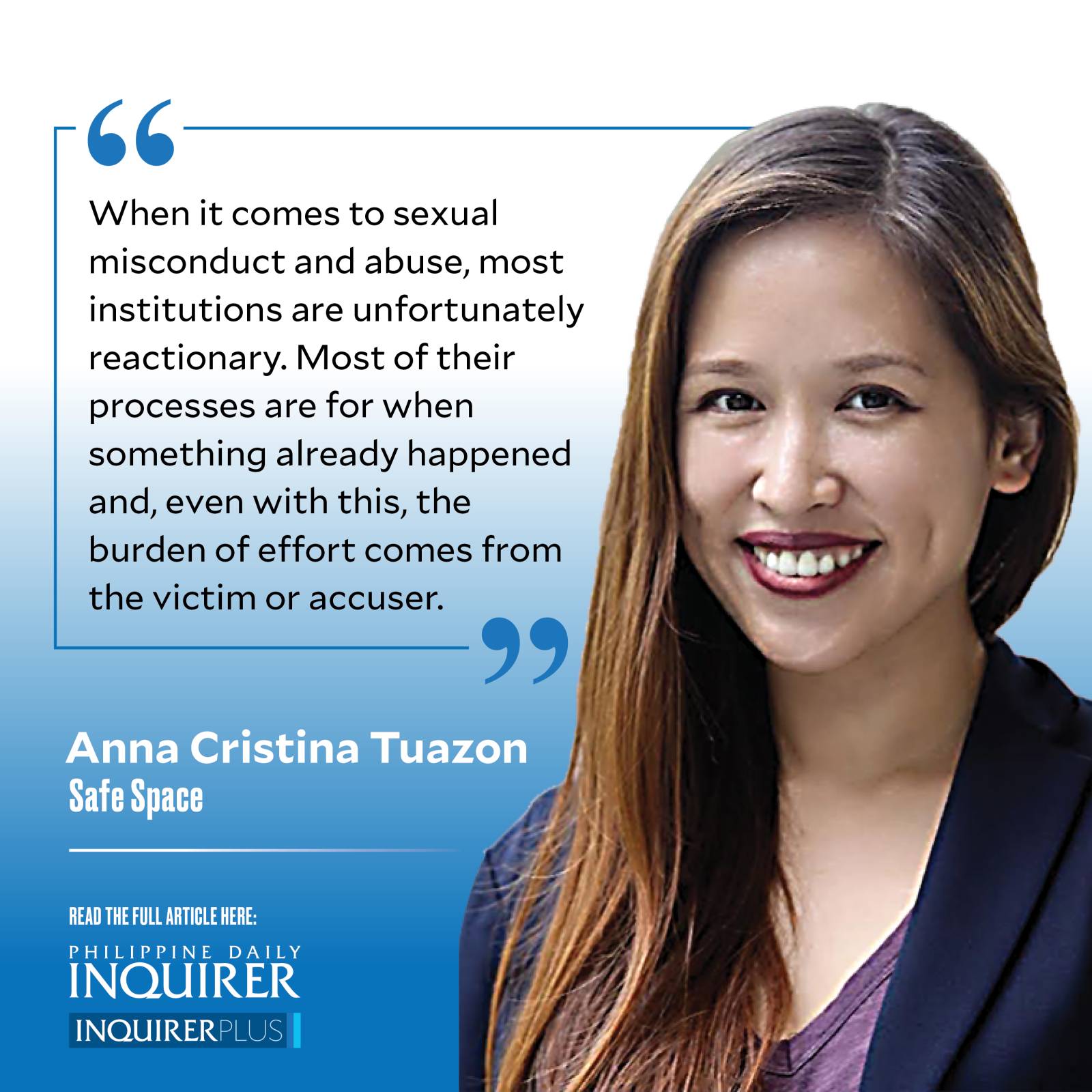Normalization of abuse

The Department of Education (DepEd) announced that it has formally asked the National Bureau of Investigation to investigate claims of multiple physical, verbal, and sexual abuse inside the Philippine High School for the Arts (PHSA). News of these allegations rocked education and parenting circles, horrified at the possibility of children being systematically harmed by the very people entrusted to protect them.
Even as we wait for the conclusion of such an investigation, the number of students and alumni coming forward with their own abuse experiences is quite staggering and indicates a culture where such abuses were not only permitted but normalized. PHSA decries the labeling of their school as a “haven of abuse” as unfair—and perhaps, until a formal external investigation has finished, it might be premature to declare them as such—but they can’t deny that a years-long series of abuses happened under their noses. Instead, they have to contend with choosing between serious neglect or complicity. If they insist that their processes in dealing with disciplinary standards meet the standards of DepEd, then those standards are sorely subpar to begin with and failed to protect our children.
It’s too simplistic—and a bit wishful—to hope that PHSA was an isolated incident in an isolated campus. Perhaps, their case illustrates the risks involved in sending children off to a secluded boarding school. Perhaps, it also shows the dangerous intersection between the norms of the creative world, where volatile artistic temperament is de rigueur, and education which can lead to notions that the use of harsh words and actions is required for artistic growth. (I still remember, as a kid in dance class, my hair and ears being pulled by my dance teacher whenever I made mistakes. I had thought this to be completely normal then, and it was only when relaying this story as an adult that my peers made me realize how wrong this was.) As an educator myself, it is hard to point fingers at them without reflecting if our own processes in our academic institutions are enough to prevent such abuses and protect children when they need it the most. It is not enough to have a bureaucratic process for complaints; we need to establish a cultural environment where such abuses cannot happen in the first place.
One thing that stood out from the VICE report that published these allegations was the school’s defense that they dismissed a student’s complaint of sexual molestation against a teacher after surmising that the incident was consensual. This belies a total disregard of the power imbalance between a teacher and a student where sexual activity is deemed permissible. That and the fact that the student was a minor at that time should have been more than enough to rule out consent.
I have written about the issue of consent many times already in this column but, apparently, it is a lesson that we need to take again and again. When I attended the orientation back in graduate school, they first handed out a flyer in big bold letters: “We do not have sex with our clients.” We laughed at its bluntness and thought we didn’t need such a visual reminder for what seemed like a given rule. But apparently, the school used this method to actively counteract the sexually permissive culture of the older generation of therapists. Unfortunately, tradition and seniority all too often determine what is acceptable. If our seniors did it, then it must be okay and we can do it too. Changing the culture can be a herculean task, but it is necessary.
When it comes to sexual misconduct and abuse, most institutions are, unfortunately reactionary. Most of their processes are for when something has already happened and, even with this, the burden of effort comes from the victim or accuser. The accuser feels the burden of disrupting the peace and harmony of their community if they report their abuse. With adolescents, whose need for belongingness and stability of their social identity is primary, this social disruption is usually too high a cost and most will choose to suffer silently. As learning institutions, we should recognize this developmental dilemma and create a process that removes such a social burden from our youth and empower them to ask for help. We should also create learning environments where the power distribution doesn’t skew too heavily toward one authority figure, creating a buffer of impunity, emboldening abusers and rendering students helpless. We need an office with no personal relationships with faculty and staff that can focus solely on protecting children. Physical environments, such as well-lit streets, frequently roaming security, and CCTVs can also reduce impunity by making perpetrators less able to do things in secret. I hope the PHSA case stands as a wake-up call for us to take our children’s safety more seriously.
——————
aatuazon@up.edu.ph




















